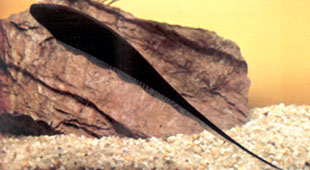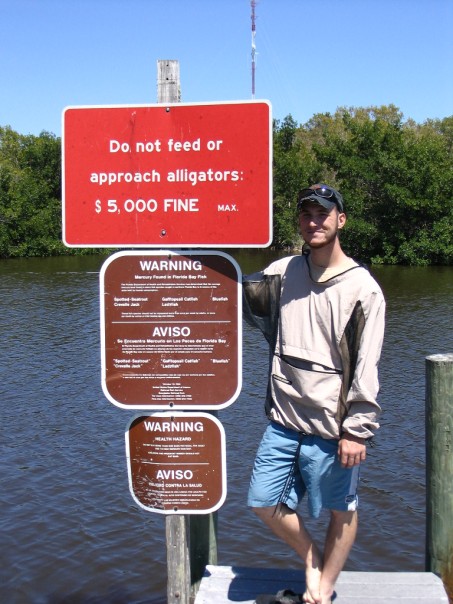
Humans can regrow skin, muscle and even livers, but regenerating an entire arm or leg is beyond our biological skills.
That's an ability we lost through evolution. But it's something lower animals - such as electric fish - still do.
Nobody's sure why we lost that ability. Studying animals that can regrow body parts could help us, through science, find ways to regain that skill, said Graciela Unguez, an assistant professor of biology at New Mexico State University.
Unguez is studying an electric fish from South America that can regrow its entire tail. The science is in its infancy, but her goal is to figure out how the fish regrows types of new specialized cells to replace the ones it lost.
"The fish, when you cut its tail, it will regrow a stump of immature cells," Unguez said. "Then it will start making muscle cells."
The immature cells change and specialize to replace the fish's skin, spine and electric organs, which it uses for defense and navigation, she said.
In her studies, she can cut a fish's tail off over and over again and watch it repeatedly grow back.
If scientists can figure out the chemistry that makes those immature cells change and grow a new tail, they might be able to create drugs that can be injected into a human amputees' limb to regrow it, Unguez said.
Higher animals have a far more complex range of cell types than the fish, and it might be we lost the ability to regenerate because of that complexity, Unguez added.
"Regeneration is a huge problem to solve," Unguez said. "If we lose a hand, it's a question of you have to regenerate the right size (of hand), the exact number of cell types that were there before."
Specialized cells - like blood, bone, nerve and skin - might also be much harder for the body to revert back to an earlier stage of development so, like the fish's stump of immature cells, they can rebuild an organ, said Harold Zakon, a professor of neurobiology at the University of Texas-Austin, who is working with Unguez.
"Perhaps by focusing on specialization, becoming something and staying that thing, the job (of a cell) could be done more efficiently," Zakon said. "Having lots of specialists may be a way of having an organism that works very well, but those specialists may not be able to go back and do somebody else's (a different cell's) job."
Unguez has been studying the fish for the past few years. On May 31, she starts a new $130,000-a-year grant from the National Institutes of Health that should greatly help her research.
That grant will last for three years.
Unguez and Zakon also plan to work this summer on an $18,000 research project at the Woods Hole Marine Biological Laboratory in Massachusetts that will investigate the evolutionary history of regeneration, Zakon said.
There are two predominant ideas about how animals like the electric fish can reproduce limbs:
One idea is that some animals can revert mature cells to an earlier stage of development and then regrow them to specialize in a different aspect - such as a skin cell reverting and regrowing as a bone cell.
The other idea is that animals depend mostly on stem cells to regenerate tissue.
"That idea would then suggest that our inability to regrow a new hand is that we just don't have enough stem cells or they don't go through enough cycles to promote growth," Unguez said.
The truth might be that animals use a combination of reverting cells and stem cells in the process.
If it is that combination, that could be better news for amputees. It would create more options for companies to create different drugs that could trigger some cells to revert and regrow, while adding stem cells to speed the process along, Unguez said.
New drugs for amputees are probably several years away. But understanding how the cells regrow will certainly speed the process along, Zakon said.
"Things move so fast these days, but I'd still say we're probably decades away from anything realizable," Zakon said. "I hope it's sooner."




No comments:
Post a Comment